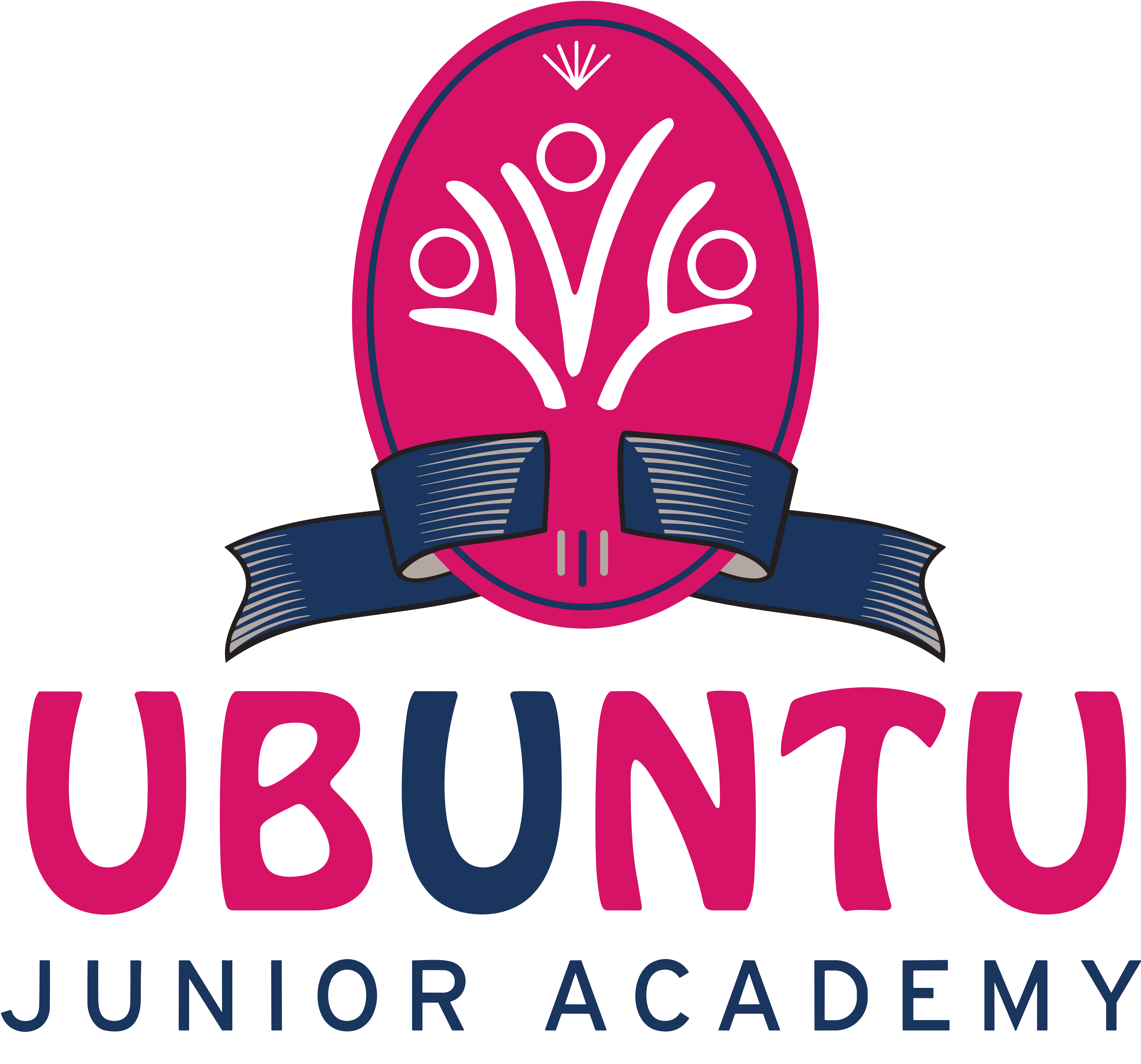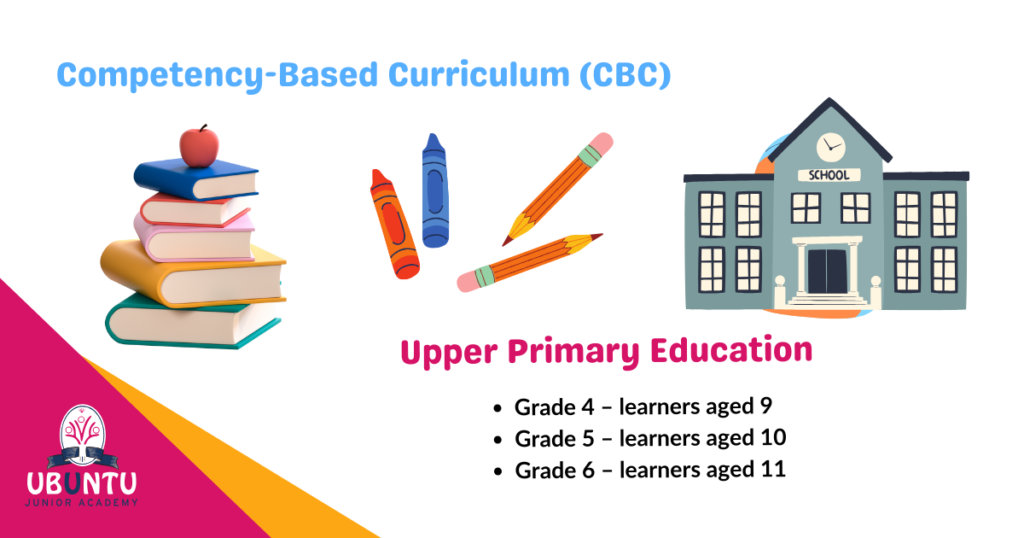Upper Primary Education at Ubuntu Junior Academy
At Ubuntu Junior Academy, we understand the importance of continuing a child’s educational journey after lower primary school. The upper primary level encompasses Grades 4, 5, and 6 and is intended for learners aged between 9 and 11 years who have successfully completed lower primary education.
Our upper primary learners’ expected ages
- Grade 4 – learners aged 9
- Grade 5 – learners aged 10
- Grade 6 – learners aged 11
Here’s an overview of what you can expect:
Subjects and Lessons
In upper primary school, we offer a well-rounded curriculum to provide our learners with a comprehensive education. Here are the subjects and lessons taught:
- English: Four classes per week.
- Kiswahili: Four classes per week.
- Home Science: Three lessons per week.
- Agriculture: Three lessons per week.
- Science and Technology: Four lessons per week.
- Mathematics: Five lessons per week.
- Religious Education: Three lessons per week, with options for Christian, Islamic, or Hindu Religious Education.
- Creative Arts: Three lessons per week.
- Physical and Health Education: Five lessons per week.
- Social Studies: Three lessons per week.
Additionally, learners are encouraged to choose one foreign language as an extra subject. The options include Arabic, French, German, or Mandarin, with two lessons per week for the chosen language. Information Communication Technology (ICT) skills are also integrated into every subject, ensuring learners are equipped with essential digital skills. Teachers also focus on imparting basic life skills and real-life experiences.
CBC Learning Tools
To enhance practical knowledge and understanding, learners in upper primary schools are introduced to various tools while attending different subjects. Here are examples of tools and materials used for specific subjects:
- Agriculture: Common tools include hammers, pliers, knives, garden trowels, pangas, jembes, slashers, spades, shovels, wheelbarrows, manure forks, fork jembes, tape measures, strings, secateurs, pruning saws, and watering cans.
- Creative Arts: Tools encompass used leather, adhesive/glue, needles, threads, beads, paper, pencils, drawing books, wood, leather cutting tools, leather punches, sample carvings, sculptures, piercing, and embedding tools.
- Home Science: Learning materials include improvised cooking pots, laundry materials, measuring cups, spoons, knives, rolling pins, charcoal stoves, sewing and weaving equipment, crocheting yarns, among other items.
National CBC Examination for Grade 6
In Grade 6, which marks the final year of upper primary education, learners are required to register for and participate in a national assessment known as the Kenya Primary School Education Assessment (KPSEA). This assessment evaluates each learner’s abilities before they transition to junior secondary school education.
The KPSEA includes four tests over three days in the subjects of Mathematics, English, Kiswahili, and Integrated Science. Home science, agriculture, science and technology, and health are assessed under Integrated Science. Adjustments are made in the duration of exams for learners who need braille, large prints, and Kenya Sign Language (KSL).
Once the results are made public by the Ministry of Education, parents and guardians can obtain the KPSEA results from the pupil’s school. Importantly, all learners can move on to junior secondary schools, regardless of their performance in the upper primary tests.
For more detailed information about the Kenyan CBC education system, you can refer to the Kenya Institute of Curriculum Development (KICD) website. At Ubuntu Junior Academy, we are dedicated to providing a high-quality and inclusive education for all our learners, ensuring they are well-prepared for their educational journey ahead.

